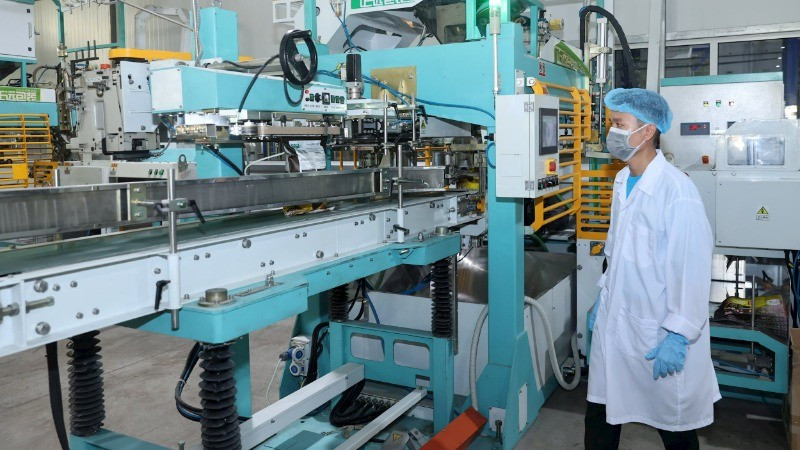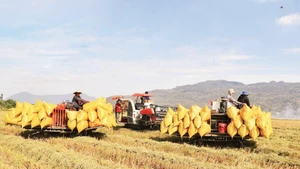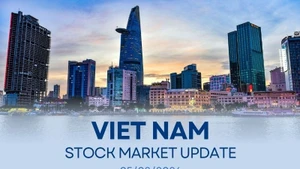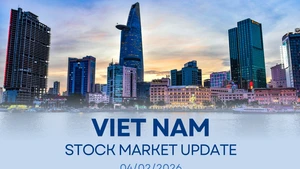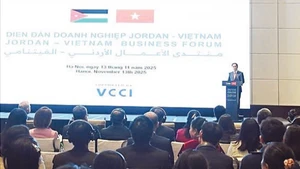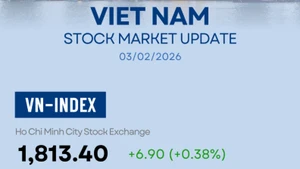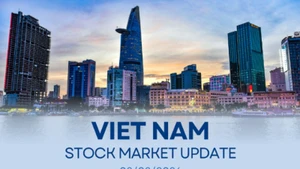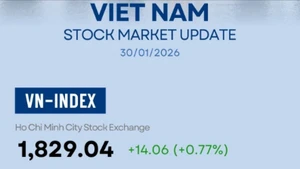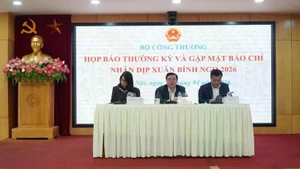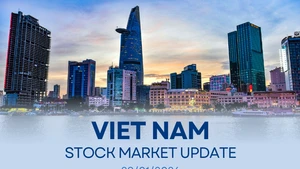At present, Indonesia, Malaysia, the Philippines and Singapore are the leading ASEAN importers of Halal agricultural and food products, mainly including rice, vegetables, fruit, cashew nuts, coffee, cocoa and seafood.
Vast opportunities driven by essential demand
In the Halal ecosystem, agricultural and processed food products form a core pillar, accounting for a significant share of the total value of the global Halal market. ASEAN is experiencing growing demand for Halal goods, and its geographical proximity offers Vietnamese businesses a competitive edge by reducing transportation costs.
Pham The Cuong, Trade Counsellor of the Viet Nam Trade Office in Indonesia, noted that Indonesia — where 87% of the population is Muslim — is the largest Halal product consumer in ASEAN. Indonesia’s Halal market is projected to reach 282 billion USD by 2025, accounting for 11.34% of global Halal spending. Revenue from the country's food and beverage sector is also expanding rapidly, with forecast to reach 360.5 billion USD in 2026. Key products include vegetables and fruits, meat, nuts, processed foods and spices.
In recent years, Vietnamese goods have gradually established a strong presence in the Indonesian market, with growing export turnover creating favourable conditions for businesses to penetrate further into the Halal segment. Direct flights between Viet Nam and Indonesia have also facilitated the movement of goods — particularly agricultural products that require swift transportation to maintain quality.
In Malaysia, the Viet Nam Trade Office reports that this country has a Muslim-majority population. In 2024, several Vietnamese agricultural products recorded notable export growth to the Malaysian market, particularly rice, fruit and coffee.
Malaysia has actively developed its Halal industry over the years, supported by its renowned JAKIM certification system. While Halal certification is not mandatory for imported goods in Malaysia, many importers still prioritise products bearing the Halal label to meet the preferences of the majority Muslim consumer base.
Meanwhile, the Halal agricultural market in Singapore is currently a niche segment but holds considerable potential due to high consumer expectations for quality and Singapore’s role as a regional transshipment hub. Demand for Halal food extends beyond Muslim consumers and includes those concerned with food quality, safety and ethical consumption. This makes Singapore an important gateway for Vietnamese Halal products to enter regional and global distribution systems.
According to Phung Van Thanh, Trade Counsellor in the Philippines, the country has the third-largest Muslim population in Southeast Asia and a high consumption rate of Halal goods. Between 2020 and 2024, the Philippines annually imported over 100 million USD worth of Halal-certified consumer products, mostly from the US, New Zealand and India. Notably, imports from ASEAN countries accounted for only about 2%, suggesting untapped potential for Vietnamese enterprises.
Increasing presence of Halal goods in retail networks
According to the Viet Nam Trade Office in Indonesia, an effective strategy for Vietnamese Halal products to penetrate this market is to collaborate with local distributors and access both traditional grocery stores (which account for 50% of retail sales) and supermarket chains (accounting for 40%), such as Hypermart, Carrefour Transmart, Giant, Lotte Mart, Superindo, Food Mart, Hero, Food Hall and Ranch Market. Vietnamese companies should also enhance their presence on e-commerce platforms. Indonesia is one of ASEAN’s leading countries in terms of e-commerce transaction value, with major platforms including Shopee, Tokopedia, Lazada and TikTok Shop.
In the Malaysian market, Trade Counsellor Le Phu Cuong recommends that Vietnamese enterprises establish commercial ties with importers of Halal-certified food products. These include major retail chains such as NSK Trade City, Mydin and Ecoshop, as well as large distributors like Berjaya Food, LS Sales and Marketing Sdn. Bhd., Tian An Sdn. Bhd., and Daiana Sdn. Bhd. Businesses should also pay close attention to annual trade fairs in Malaysia, such as the Malaysia International Halal Showcase (MIHAS) in September and the International Halal Expo in June.
Other food and beverage fairs that prioritise Halal products, including MIFB 2025 and the Selangor Summit (mid-October 2025). In addition, initiatives such as Vietnamese Goods Week at AEON malls in Kuala Lumpur, Penang and Johor, as well as establishing ties with major local distributors, can help connect Vietnamese firms directly to retail systems. Companies should also invite international buyers to attend Vietnamese trade events.
Sharing a similar view, Cao Xuan Thang, Trade Counsellor of the Viet Nam Trade Office in Singapore, emphasised the importance of participating in trade fairs to boost Halal product circulation in ASEAN markets. He also called for increased trade promotion to seize new business opportunities. “In May 2025, the Viet Nam Trade Office in Singapore, in coordination with relevant agencies, will organise the Viet Nam – Singapore Halal Trade Conference 2025. This will be a valuable opportunity for Halal-focused enterprises from both countries to exchange insights and foster business cooperation amid the rapid growth of the global Halal market,” Thang added.
